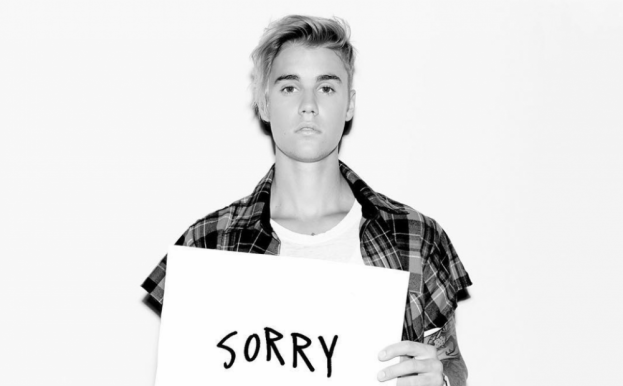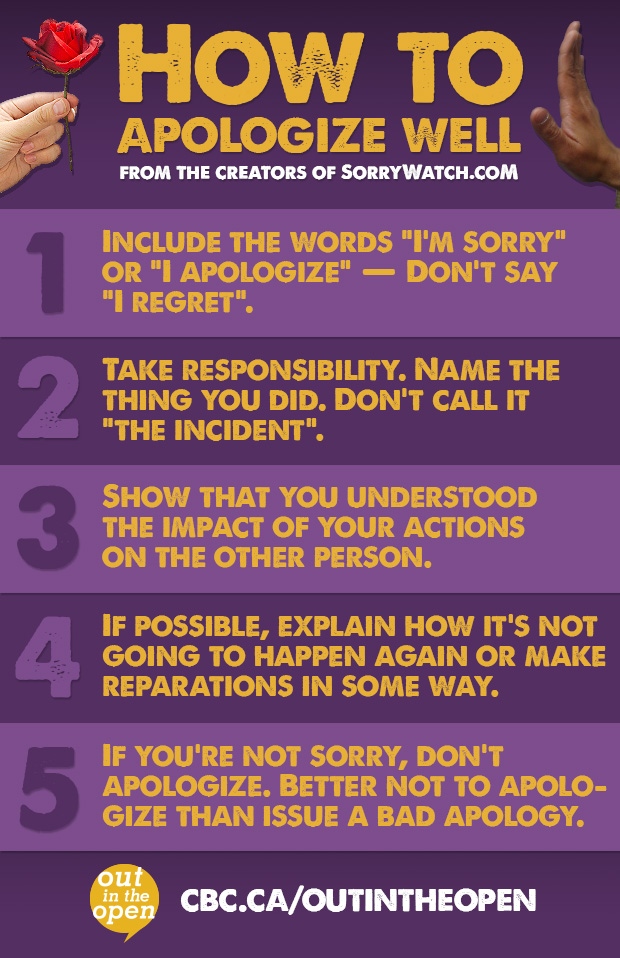Tags
Anatomy of an apology, Apology like a door to healing, Authentic Apology, Authentic Forgiveness, Bridge of Forgiveness, Easter, Easter Forgiveness, I'm sorry, Marriage, Out in the Open, Paradox of Forgiveness, Restorative Practices, SorryWatch, Taking responsibility, Wanting to be heard
… for the record: probably not.
It usually isn’t too late to apologize, and in most cases, it is what most people want to hear from those who harmed them.
Wanting to be heard more than anything else:
That’s what Renée Napier wanted to hear most from Eric Smallridge – the young drunk driver who, in 2003, was sentenced to 22 years in prison on two counts of DUI manslaughter for killing both Renée’s daughter Meagan and the other young woman in the car, Lisa Dickson.
Piya Chattopadhyay had a remarkable interview with Renée and Eric on her radio show: Out in the Open:
“Eric first said “I’m sorry” to Renée in an apology letter that he wrote before he was sentenced. Then, he apologized in person at the sentencing hearing. Those two apologies lead to a remarkable relationship between Eric and Renée.”
The words ‘I’m sorry’ are kind of like the door that opens … that door to healing,” said Renée.
Of course, it’s not just the words a victim wants to hear. A person can smell a fake apology a mile away; and an apology that is more about the apologizer than it is about the person who has been harmed is not an apology at all.
Anatomy of an Apology:
Chattopadhyay noted that Susan McCarthy and Marjorie Ingall set up a website, SorryWatch, to analyze apologies in the news, literature, and history. Here’s a brief summary of their insights:
To listen to the interview on this topic, go to “Sorry States” on “Out in the Open” with Piya Chattopadhyay.
More on the Science of Apology:
SorryWatch posted an article exploring some recent research on “apology“. They reviewed a paper called:
“An Exploration of the Structure of Effective Apologies,” (published in the May 2016 issue of Negotiation and Conflict Management Research: Abstract online.) The academics… found that the best-received apologies contained all six of the following elements:
1. Expression of regret/sorrow [note the distinction between “regret” and “sorrow” that SorryWatch makes in this interview]
2. Explanation of what went wrong
3. Acknowledgment of responsibility
4. Declaration of repentance
5. Offer of repair
6. Request for forgiveness
“But all six elements are not created equal! The researchers found that the most important, by far, was acknowledgment of responsibility. And this happens to be the one that a lot of folks have trouble with. As we’ve discussed, most of us don’t like to take ownership of a screw-up because to do so often conflicts with our self-image as a good person. Consciously or not, we want there to be extenuating circumstances, or we want the other person to be responsible for triggering our bad behavior. We loathe saying “I screwed up; I own that” because we loathe believing it. And yet — it’s key to authentic apologies.”
The key to authentic forgiveness?
In order to be able to forgive, we often need the sixth element of an apology: a request for forgiveness. Forgiveness is not entitled merely because the apology has been made, and in some cases, forgiveness cannot be given… yet, nor can it be demanded ever.
However harmed we are, most people who have offered forgiveness begin to feel the gargantuan weight of resentment fall off them – paradoxically – this is the same feeling experienced by those who have sought forgiveness when they (finally) take responsibility, and apologize.
But the key to being able to forgive doesn’t start with the one seeking forgiveness; it doesn’t even start with anything innate in the one who is in the position to forgive. Forgiveness begins with our recognition of our own need to be forgiven, and to be open to receive forgiveness ourselves.
The Paradox of Forgiveness:
In the above noted post I wrote:
We live in a time when the need for forgiveness looms large on every world stage. We would do well to contemplate the paradox of forgiveness (note the parable of the Unmerciful Servant in Matthew 18).
Forgiveness: it’s catastrophically expensive, because the cost of restoring ruinous relationships is so high.
Therefore, may you come to know both – Forgiveness and the Forgiver. May you find in this knowing, the generousity to be able to forgive others, because forgiveness is a gift that can only be paid forward.
Easter: the signal that it’s not too late to say your sorry…
For more on forgiveness, see “The Bridge of Forgiveness.”



enjoying your blog – have a safe holiday
LikeLiked by 1 person
Thanks Erika. Just got back late the other night. Must show pictures, etc. May your Easter be joyful!
LikeLike
“Forgiveness begins with our recognition of our own need to be forgiven, and to be open to receive forgiveness ourselves.”
True. So often we wait for the elusive apology.
LikeLiked by 1 person
Yes, we can become experts in the waiting, and not in the active giving of forgiveness. It stretches our faith and comfortability – all to be more like Jesus.
LikeLiked by 1 person
Love it Rusty. I remember being taught years ago the ‘ten word way’: “I am sorry. I was wrong. Will you forgive me?” That is way less detailed than what you suggest, though I think it still captures a lot of the substance. It lacks the explanation of went wrong and the offer of repair.
LikeLiked by 1 person
I suspect “less is more” in some regards. Having said that, we are ever novices to the art and science of forgiving and receiving forgiveness. As with all things holy, it is easier said than done; nevertheless we are compelled by His love. Thanks.
LikeLiked by 1 person
Pingback: The Grievance Narratives | More Enigma Than Dogma
Pingback: Hundreds of Tiny Threads | More Enigma Than Dogma